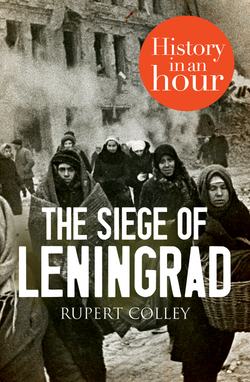Читать книгу The Siege of Leningrad: History in an Hour - Rupert Colley - Страница 7
ОглавлениеThe Great Patriotic War
On 22 June 1941, Hitler launched Operation Barbarossa, Germany’s invasion of the Soviet Union, one of the largest and most ambitious attacks ever staged – over three million Axis troops attacked along a 900-mile front. What followed was the most destructive war in history; a war of annihilation.
For Hitler, the city of Leningrad held great symbolism, being the birthplace of Bolshevism; his objective was to raze it to the ground and render it uninhabitable. An hour before the attack in the early hours of 22 June, Hitler addressed his troops:
German soldiers, you are about to join battle – a hard and crucial battle. The destiny of Europe, the future of the German Reich, the existence of our nation, now lies in your hands alone.
Operation Barbarossa
Bundesarchiv, Bild 101I-186-0184-02A / Otto / CC-BY-SA
Stalin’s first act was to send Vyacheslav Molotov, his foreign minister, to announce the war to his people. Molotov’s radio broadcast, relayed across cities by loudspeaker eight hours after the initial attack, condemned this ‘act of treachery unprecedented in the history of civilized nations.’
On 3 July, in his first public address since the invasion, Stalin spoke of ‘The Great Patriotic War’. His usual political rhetoric, while still apparent, was played down. Instead, he spoke in patriotic terms, pulling together his people to defeat the beast that was now in their midst: ‘Comrades, citizens, brothers and sisters, men of our Army and Navy! My words are addressed to you, dear friends!’ he began. He continued, ‘The issue is one of life and death for the Soviet State, of life and death for the peoples of the USSR; the issue is whether the peoples of the Soviet Union shall be free or fall into slavery.’
